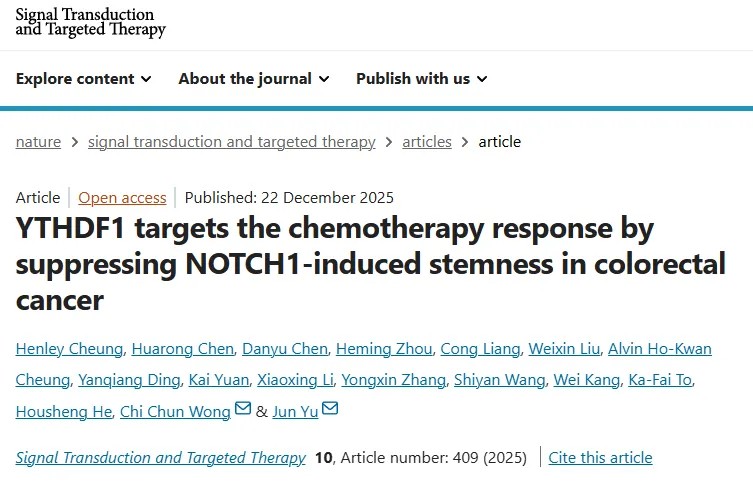吴一龙:将EGFR突变的NSCLC患者中发生耐药的患者细分为3种类型
| 导读 | <a href="http://img.360zhyx.com/uploads/2012/10/u34854745322801279807fm23gp0.jpg"><img class="aligncenter size-full wp-image-5069" title="u=3485474532,2801279807&... |
<a href="http://img.360zhyx.com/uploads/2012/10/u34854745322801279807fm23gp0.jpg"><img class="aligncenter size-full wp-image-5069" title="u=3485474532,2801279807&fm=23&gp=0" src="http://img.360zhyx.com/uploads/2012/10/u34854745322801279807fm23gp0.jpg" alt="" width="350" height="233" /></a>
17日,Lung Cancer在线发表了广东省人民医院肺癌中心主任吴一龙教授领衔的文章,文章指出:根据临床特征,可将EGFR突变患者发生耐药的患者分为3种类型:缓慢进展,局部进展,快速进展。吴教授说:“每一种类型均有简单的临床标准可之判别,并有相应的应对治疗措施。不是王婆卖瓜,但我认为,这是近年在这领域具有非常实用价值的重要文章之一。”<!--more-->
<br/><strong>原文摘要:</strong><br/>
Clinical modes of EGFR tyrosine kinase inhibitor failure and subsequent management in advanced non-small cell lung cancer
Abstract
Background
There is no published overview of epidermal growth factor receptor (EGFR) tyrosine kinase inhibitor (TKI) failure modes in advanced non-small-cell lung cancer (NSCLC). This study aimed to classify the diversity of EGFR-TKI failure, and to investigate the usefulness of clinical modes in subsequent management and prognosis.
Methods
One-hundred and twenty consecutive clinical trial patients with EGFR-TKI failure were enrolled as the training set to establish a clinical model based on clinical factors. Another 107 routine patients were enrolled as the validating set according to a Bayes discriminant analysis. EGFR mutations and c-MET amplification were analyzed. Kaplan–Meier survival analysis was used to test the differences among three clinical modes and subsequent management.
Results
The duration of disease control, evolution of tumor burden, and clinical symptom were verified as feasible grouping variables. A correct grouping rate achieved 87.9%. The cohort was classified into three groups, as follows: 130 patients with dramatic progression, 42 with gradual progression, and 55 with local progression. Progression-free survivals (PFSs) for the dramatic progression, gradual progression, and local progression groups were 9.3, 12.9, and 9.2 months, respectively (P=0.007). Overall survivals for the groups (OSs) were 17.1, 39.4, and 23.1 months, respectively (P<0.001). TKI continuation was superior to switching chemotherapy in a subsequent setting for gradual progression (39.4 months vs. 17.8 months; P=0.02). The difference of EGFR or c-MET among the three groups was not significant.
Conclusions
Clinical modes of EGFR-TKI failure could favor strategies for subsequent treatment and predicting a survival benefit in advanced NSCLC.
文章链接:<a href="http://www.lungcancerjournal.info/article/S0169-5002(12)00545-4/abstract">http://www.lungcancerjournal.info/article/S0169-5002(12)00545-4/abstract</a>
17日,Lung Cancer在线发表了广东省人民医院肺癌中心主任吴一龙教授领衔的文章,文章指出:根据临床特征,可将EGFR突变患者发生耐药的患者分为3种类型:缓慢进展,局部进展,快速进展。吴教授说:“每一种类型均有简单的临床标准可之判别,并有相应的应对治疗措施。不是王婆卖瓜,但我认为,这是近年在这领域具有非常实用价值的重要文章之一。”<!--more-->
<br/><strong>原文摘要:</strong><br/>
Clinical modes of EGFR tyrosine kinase inhibitor failure and subsequent management in advanced non-small cell lung cancer
Abstract
Background
There is no published overview of epidermal growth factor receptor (EGFR) tyrosine kinase inhibitor (TKI) failure modes in advanced non-small-cell lung cancer (NSCLC). This study aimed to classify the diversity of EGFR-TKI failure, and to investigate the usefulness of clinical modes in subsequent management and prognosis.
Methods
One-hundred and twenty consecutive clinical trial patients with EGFR-TKI failure were enrolled as the training set to establish a clinical model based on clinical factors. Another 107 routine patients were enrolled as the validating set according to a Bayes discriminant analysis. EGFR mutations and c-MET amplification were analyzed. Kaplan–Meier survival analysis was used to test the differences among three clinical modes and subsequent management.
Results
The duration of disease control, evolution of tumor burden, and clinical symptom were verified as feasible grouping variables. A correct grouping rate achieved 87.9%. The cohort was classified into three groups, as follows: 130 patients with dramatic progression, 42 with gradual progression, and 55 with local progression. Progression-free survivals (PFSs) for the dramatic progression, gradual progression, and local progression groups were 9.3, 12.9, and 9.2 months, respectively (P=0.007). Overall survivals for the groups (OSs) were 17.1, 39.4, and 23.1 months, respectively (P<0.001). TKI continuation was superior to switching chemotherapy in a subsequent setting for gradual progression (39.4 months vs. 17.8 months; P=0.02). The difference of EGFR or c-MET among the three groups was not significant.
Conclusions
Clinical modes of EGFR-TKI failure could favor strategies for subsequent treatment and predicting a survival benefit in advanced NSCLC.
文章链接:<a href="http://www.lungcancerjournal.info/article/S0169-5002(12)00545-4/abstract">http://www.lungcancerjournal.info/article/S0169-5002(12)00545-4/abstract</a>
 腾讯登录
腾讯登录
还没有人评论,赶快抢个沙发